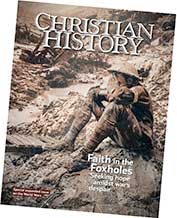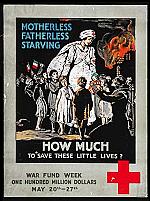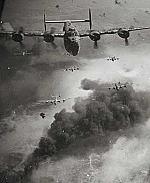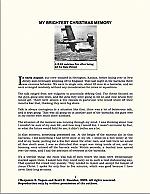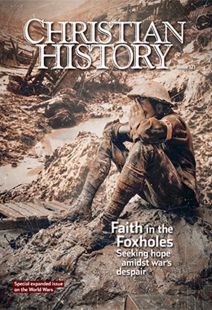John Birch: Fighting missionary
HEARING THE NAME “John Birch” today, many think of the John Birch Society. But the real John Birch had nothing to do with the anti-Communist group of the 1950s that named itself in his honor.
When 22-year-old Birch, graduate of Mercer University and a Baptist seminary in Macon, Georgia, arrived in Shanghai in Japanese-occupied China in 1940, he’d come to be a missionary to the Chinese people and began by learning the world’s most difficult language in record time—no surprise to his family back in Georgia who always saw Birch as the smartest guy in any room.
Order Christian History #121: Faith in the Foxholes in print.
Subscribe now to get future print issues in your mailbox (donation requested but not required).
The Chinese recognized his charitable heart as he preached the love of Christ, a message many had never heard except from the lips of an interpreter. And preach he did, as he covered much of occupied and unoccupied China—dodging Japanese patrols, dressing in native clothes, eating the same food, and taking the same risks as the people he quickly came to love.
From missionary to guide to spy
As financial support from the World Fundamental Baptist Missionary Fellowship dried up, Birch realized he’d have to find some other source of income. He was sitting in a restaurant in Zhejiang province, eating the cheapest fare on the menu, when a man approached. “Are you American?”
Birch nodded. “Follow me,” the man said and led him to a sampan (flat-bottomed boat) on a nearby river where he could hear English being spoken inside. Birch called out, “Are there Americans in there?”
“Jesus Christ!” came a voice from inside. “No Jap could have that southern drawl.”
Birch answered, “Jesus Christ is a very good name, but I’m not he.” He stepped inside the sampan and looked directly into the eyes of Colonel James Doolittle. After bombing Tokyo, Doolittle and his men had bailed out over what they erroneously thought was free China. They needed help.
As things turned out, it became a question of who helped whom the most. Birch and many Chinese citizens risked their lives guiding Doolittle and his raiders to the safety of Chungking and Chiang Kai-shek; while Doolittle, impressed with Birch’s intelligence and knowing that the young man wanted to join the army, preferably as a chaplain, plugged him through military channels.
And so Birch became a second lieutenant in the famed Flying Tigers, commanded by General Claire Chennault, but not as a chaplain. Because of his command of the Chinese language, thorough knowledge of the countryside, mastery of disguise, mutual love for the Chinese nationals he worked with, and genius for gathering intelligence, Birch became … a spy.
But he had one request of Chennault—“Whenever I can, without neglecting my duties, can I preach?” General Chennault assented. Years later, the war over and Birch dead, this rough military man would remark with tears in his eyes, “John Birch was like the son I never had.”
In a last letter home to his mother who had asked him if he’d be getting a furlough, Birch answered that he would love to but could not leave until the last Japanese had left. And indeed he stayed past Japan’s surrender on August 15, 1945. On August 25 Birch, along with some American, Chinese, and Korean comrades, went on one last mission in a small town near Xuzhou. There Chinese Communists shot and killed Birch when he refused to surrender his revolver. After his death both the American and Chinese governments awarded him military honors.
This article is from Christian History magazine #121 Faith in the Foxholes. Read it in context here!
By Don Haines
[Christian History originally published this article in Christian History Issue #121 in 2017]
Don Haines is a freelance writer from Woodbine, MarylandNext articles
Spreading light in a dark world
The world wars served as a pivotal time for Christian relief efforts
Jared S. BurkholderWorld Wars: Recommended resources
The landscape of resources about faith in the world wars is vast. Here are some recommendations from CH editorial staff and this issue’s authors.
the editorsThe ecumenical dilemma
Protestants and Catholics share their experiences of the intersection between the two groups—from the Reformation until the present day
John W. O’Malley, S.J., Paul Rorem, Ernest Freeman, John Armstrong, Thomas A. BaimaSupport us
Christian History Institute (CHI) is a non-profit Pennsylvania corporation founded in 1982. Your donations support the continuation of this ministry
Donate



